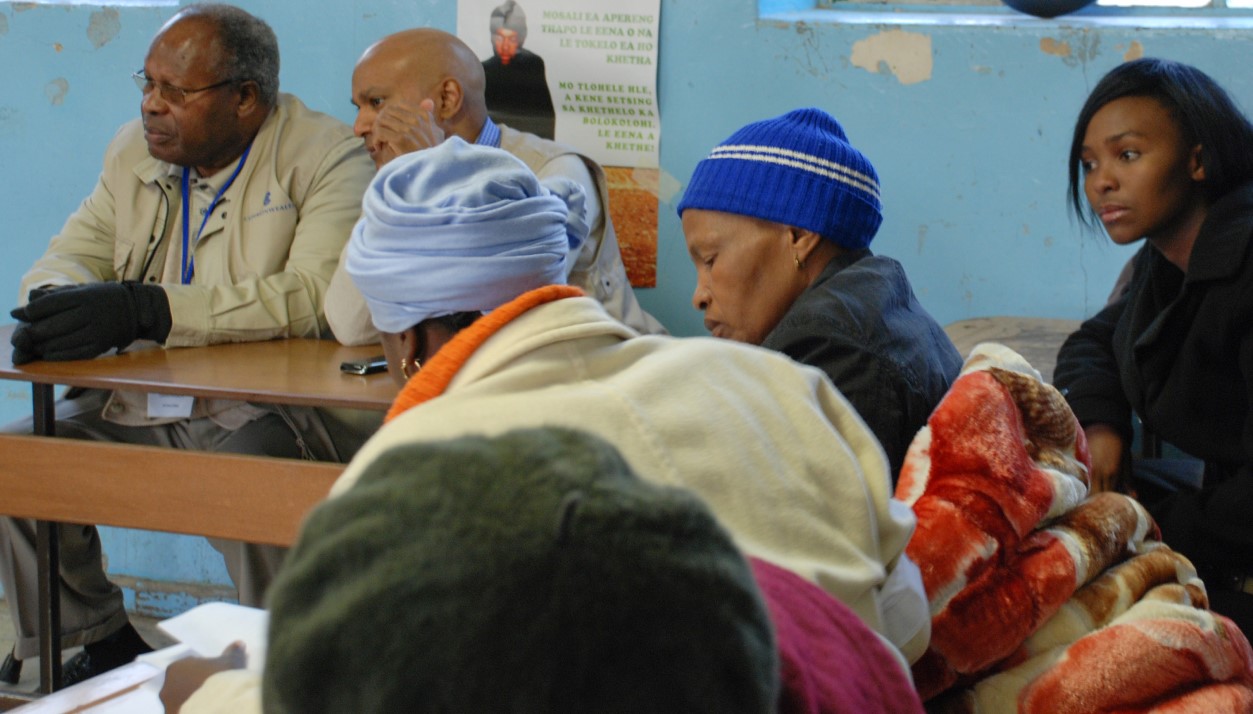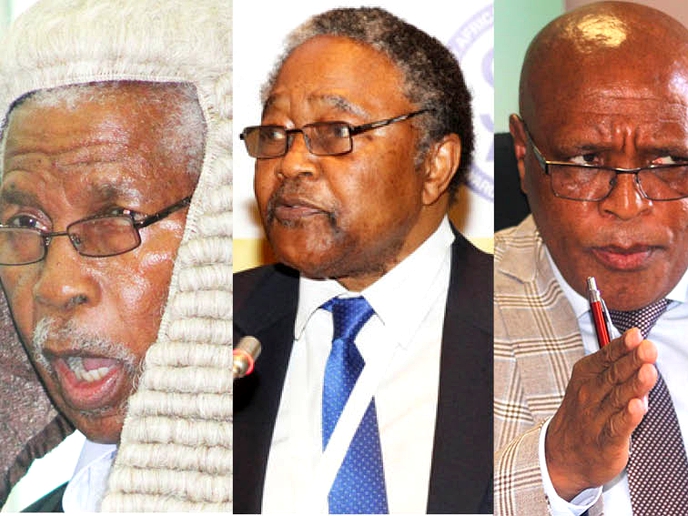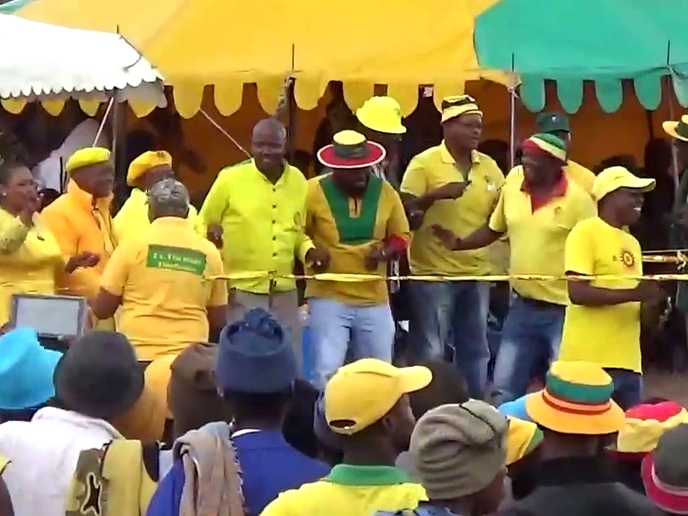Coalition compacts have betrayed the trust of Basotho -brought more problems than expected

Mr Mzimkhulu Sithetho
Managing Director of the Governance Institute for Sustainable Development and Editor-In-Chief of thizkingdom.com

Introduction
Political fatigue ate Basotho until they had no trust in one political leading a government. The 2012 elections, which came as a time Lesotho was on the eve of celebrating two decades of democracy since 1993, bred an election outcome with no outright winner. This resulted in parties bound to forge alliances that would help them master enough votes to form a government. The advent of coalition governments refilled Basotho's lost hope that things would be change for the better. Hope was that a coalition government would end the arrogance and pig-headedness brought about by majoritarian support in the national assembly. The dawn of a coalition government also gave Basotho hope that this would strengthen cross pollination of ideas within a government of more than one party with different political ideologies. It was also felt that it would enrich inter-party and intra-party convergence of developmental projects in government, a character of democratic consolidation. A government of more than two parties would naturally mean that there are many brains put together for a common goal of emancipating Basotho from the yoke of poverty, hunger, squalor, decease and other malfeasance. These ills have beset this nation since independence. But to the contrary, nothing has changed. However, the opposite has been the case.
Descending to the era of dictatorship and tyranny
The coalition governments have instead, become fortresses for nepotism, cronyism and corruption. The parties in a coalition government have bloated the cabinet from 19 ministries in 2012 to 28 in 2020, but service delivery is still at infancy stage. Nine (9) ministries have been split into two or even three for some. While expectation was that this would increase effectiveness of service delivery as the loaded ministries were now separated, it was the opposite. Intent of splitting the ministries was to create more opportunities for the many parties in a coalition that had their own lists of people to satisfy. Political parties have become nothing less than paradises for self-aggrandisement that channel opportunities and economic benefits to the loyalists of those in power. This has created bitterness and the scramble to get these opportunities among followers who, driven by poverty, jostle to get these opportunities. People sell their own souls to get economic benefits. Many deputy positions were created to an extent that some ministries even have two deputies. There has been a scramble for getting to the national cake at the expense of the voters, while corruption grows day-by-day, vilifying the civil service, diplomatic corps and the parastatals.
The advent of coalition governments is increasing becoming a thorn to Basotho. There are many opportunists coming from parties in a coalition, waiting outside there to get to the national cake and leaders continue planting a seed of discord. There is as a result, decadence, depravity and self-indulgence at the expense of the majority while disclination is order of day. Factions of loyalty to the leader have ravaged the parties as the ills of nepotism and cronyism and above all, power jostling have become order of day. There is, as a result, endemic conflicts and intra- and inter-party battles driven by the scramble to get a share of the cake.
Leaders of political parties have become a crop of selfish and aggrandising personalities who dangle the carrot among their voters to galvanise support, taking advantage of the vulnerability of people. The diplomatic corps, the civil service, military, police, national security and correctional services have become fortresses for corruption. Coalition partners deploy their own loyalists at the expense of the majority Basotho who are even more qualified. Today, there is talk of lists, which are discussed in informal and secretive meetings called 'linakeli' and when finalised, are presented to ministers and MPs on people who have to get jobs on the bases of their level of support to the filthy leaders.
This nefarious practice has given leaders of parties in a coalition to drum up their own support among the electorate using the vacancies that have been artificially created to spoon-feed confidantes. The civil service has become a paradise for underqualified personnel, ghost civil servants who are still earning salaries from the public purse. This has bloated the national wage bill to the extent that international friends of Lesotho like the IMF have raised a concern on a huge government wage bill. While these take toll, evil politicians continue to ambush the national vote for their own personal interests. In the meantime, the nation continues to wallow in poverty, deprivation, destitution, hunger and famine. Lesotho has just advanced a few steps away from a poverty rate that is above 50 percent, now standing at 49 percent.
Other ills are that institutions that are supposed to support democracy to flourish - courts of law, police service, the army, civil service, parliament, statutory bodies and parastatals have been infiltrated by politicians. They deploy their own confidantes and loyalists to the extent of undermining merit for those who pay allegiance to them. The end result is poor service delivery, weak governance, social conflict and battering of morale of those led by these less qualified personnel who are parachuted to fields which they have no requisite skills and expertise. There is today, a malfeasance of the scramble for deployment to the diplomatic missions abroad to those who are loyal to coalition partners. The advent of coalition governments not completing their five-year term has placed an albatross on the necks of the deploy-ees who are disadvantaged when their regimes fall as they surely have to be recalled and replaced with those who support ruling parties. When these episodes unfold, what suffers is the nation, that is not part of these nefarious elements of undermining democratic consolidation. Every change in Lesotho takes a negative, downward trend.
Molimo O boloke Lesotho le Basotho!
Most Read
New coalition government-in-waiting unveiled

Reforms, Elections and Democratic Stability in Lesotho

The cooling of the political temperatures came with the BAP joining the bandwagon after a season of political agitation and chess games, reflecting political anomalies in the system of political governance of Lesotho:

Related Stories
When democracy-cushioning institutions are put under siege for partisan interests

What is the meaning of democracy within Lesotho's political parties?

Lesotho - a country with a nasty political history continually fraying at the edges

Opinion Vote Polls
Do you think the existing government is going in the right direction to benefit the people of the country?
Subscribe for your daily newsletters
Enter your email to subscribe to our newsletter.

